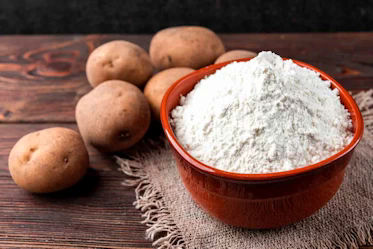|
Bone health
The iron, phosphorous, calcium, magnesium, and zinc in potatoes all help the body to build and maintain bone structure and strength.
Iron and zinc play crucial roles in the production and maturation of collagen.
Phosphorus and calcium are both important in bone structure, but it is essential to balance the two minerals for proper bone mineralization. Too much phosphorus and too little calcium result in bone loss and contribute to osteoporosis.
Blood pressure
A low sodium intake is essential for maintaining a healthy blood pressure, but increasing potassium intake may be just as important. Potassium encourages vasodilation, or the widening of the blood vessels.
According to the National Health and Nutrition Examination Survey (NHANES), fewer than 2 percent of American adults meet the daily 4,700-milligram recommendation.
Potassium, calcium, and magnesium are all present in the potato. These have been found to decrease blood pressure naturally.
Heart health
The potato’s fibre, potassium, vitamin C, and vitamin B6 content, coupled with its lack of cholesterol, all support heart health.
Potatoes contain significant amounts of fiber. Fiber helps lower the total amount of cholesterol in the blood, thereby decreasing the risk of heart disease.
Research based on the NHANES has linked a higher intake of potassium and a lower intake of sodium to a reduced risk of all-cause mortality and heart disease.
Inflammation
Choline is an important and versatile nutrient that is present in potatoes. It helps with muscle movement, mood, learning, and memory.
It also assists in:
maintaining the structure of cellular membranes
transmitting nerve impulses
the absorption of fat
early brain development
|

